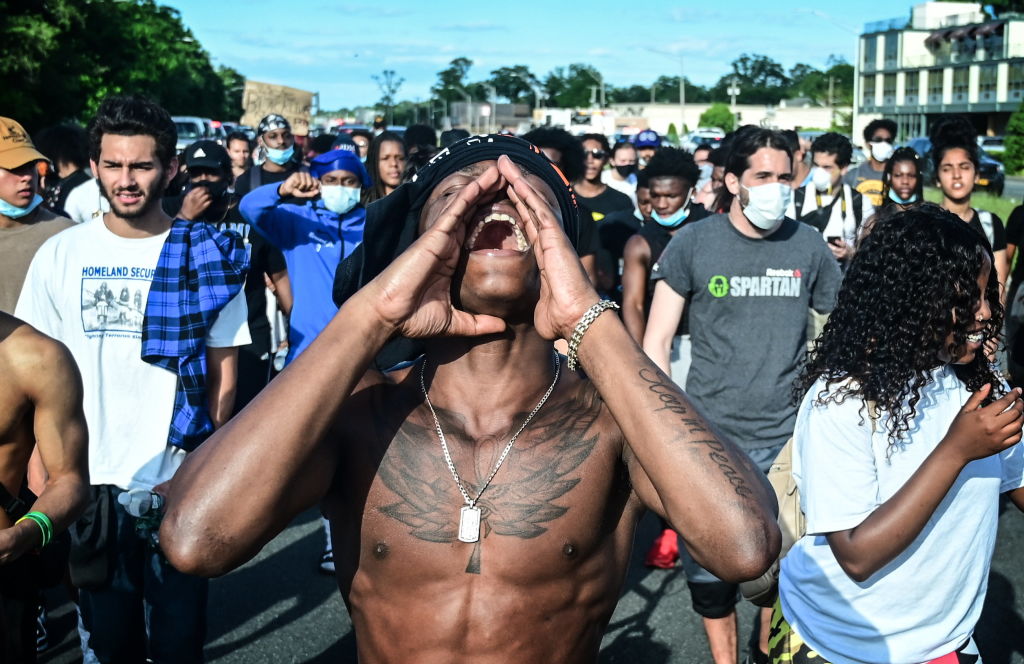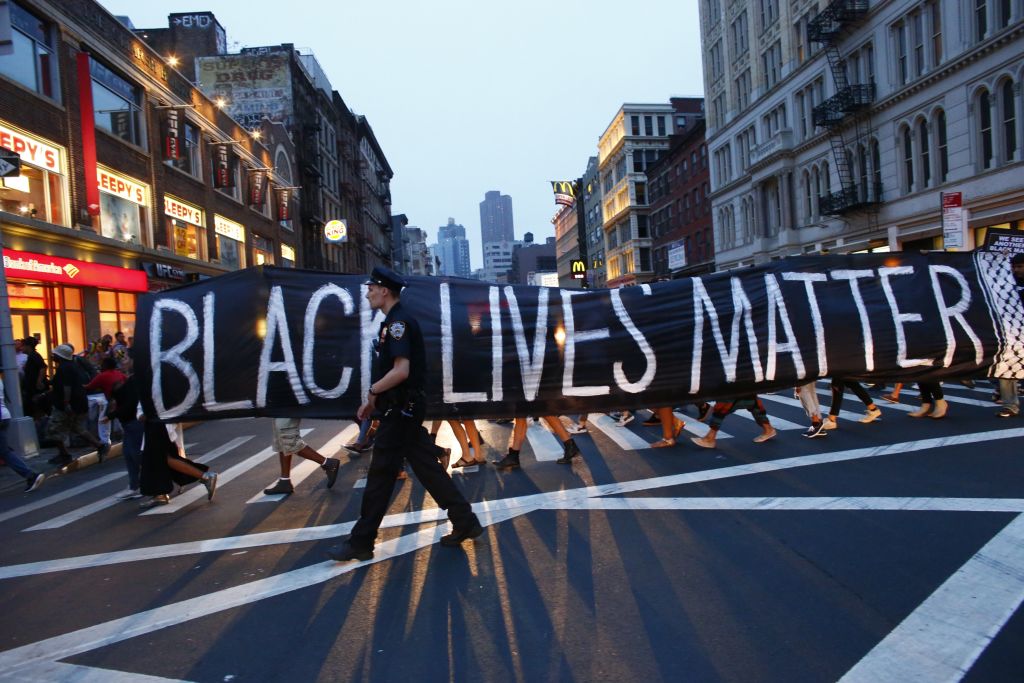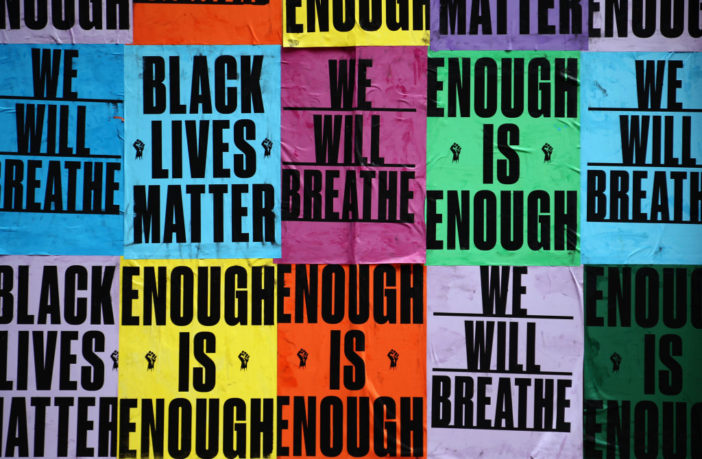Black America Web Featured Video
CLOSE
Source: WWD / Getty
Black Lives Matter officially turned 10 years old on Thursday, leaving us with an entire decade’s worth of legacy to ponder over.
Whether you like the organization or not, there is no denying the influence BLM has had on the world.
What started as a hashtag created by Alicia Garza, Patrisse Cullors and Opal Tometi, which emerged on the scene in 2013 after George Zimmerman was acquitted of murdering 17-year-old Trayvon Martin, turned into one of the largest movements in U.S. history.
Researchers have estimated that 15 million to 26 million people in the United States participated in the 2020 Black Lives Matter protests.
Since then, Black Lives Matter has become a polarizing organization that oftentimes finds itself in the crosshairs of political warfare.
So how did we get here?
In this piece, we will discuss the 10-year legacy of Black Lives Matter in all of its glory as well as all of its pain. When a catalyst for change is created that change can not be controlled.
In 2018, while I was working in audience development, I came across a tool that would allow me to extract social media hashtag data to make better decisions about how and when to use certain tags. The Black Lives Matter Movement was in full swing and the hashtag was still very popular among Twitter users, but how popular was very intriguing to me. So I started digging into the research software using specific dates that centered around the movement. I soon came to realize that the hashtag #Blacklivesmatter was one of the most impactful hashtag revolutions the young platform had ever seen.
After teen Trayvon Martin was killed by George Zimmerman, who was later acquitted in 2013, many people took to Twitter to voice their frustrations using the hashtag. It grew into a social movement against violence and systemic racism toward Black people.
Sadly, the analytics platform couldn’t pull data from 2013, so I put my thinking cap on and came up with other important dates centered around moments that were rallying cries for Black pain.
On July 5, 2016, Alton Sterling was killed by police while being recorded by multiple bystanders.
On July 6, 2016, Philando Castile was shot and killed by police while being recorded on Facebook Live.
These two videos immediately turned into viral sensations prompting the #blacklivesmatter hashtag into a frenzy.

Source: Newsday LLC / Getty
Don’t just take my word for it, peep the numbers.
In 2016 on Twitter, the hashtag #blacklivesmatter had 31.3 billion impressions, from 11.7 million mentions by 8.7 million users.
In the week that Alton Sterling and Philando Castile were killed by police the hashtag #blacklivesmatter had 10.4 billion impressions from 4.4 million mentions by 3.7 million users.
Thirty-four percent of all the impressions created by the #blacklivesmatter hashtag in 2016 occurred the week that Alton Sterling and Philando Castile were killed.
The hashtag #blacklivesmatter reached 62 million people an hour the day Alton Sterling was killed.
If you followed that same trend, it would take five hours to reach the entire population of the United States and one hour to reach the entire population of the United Kingdom.
After taking a second to digest the numbers I knew right then Black Lives Matter was a movement here to stay. But even as big as the numbers were, it still just felt like numbers and not really a physical movement. Yes, folks bought hoodies and posted videos supporting BLM and the families who lost loved ones; the whole nine, but the movement still felt like it lived on social media.

Source: KENA BETANCUR / Getty
All of that changed on May 25, 2020, when George Floyd was killed by former Minneapolis police officer Derek Chauvin after being arrested for allegedly using a counterfeit $20 bill. After the world watched Chauvin kneeling on Floyd’s neck for over nine minutes, the folks took to the streets with a purpose and Black Lives Matter was now at your front door.
According to Brookings, 94% of the people who joined the protests after Floyd’s death reported racial justice and/or police brutality/Black Lives Matter as one of their reasons for joining the crowds. This made Black Lives Matter extremely popular and also powerful.
The nationwide protests in 2020 have led to meaningful changes including the Justice in Policing Act of 2020, the George Floyd Law Enforcement Trust and Integrity Act, the Ending Qualified Immunity Act, and an Executive Order on Safe Policing for Safe Communities. Many cities and states also adopted laws centered around the murder of George Floyd.
BLM’s newfound popularity put a target on the organization’s back, with conservatives participating in every smear campaign possible to try to hurt the movement. By 2020, most of the founders had moved on from the organization, but it continued to grow. According to its website, the organization has more than 40 chapters all over the world.
But the organization hasn’t been devoid of scandal and controversy. After announcing its creator house in 2022, many critics questioned the purchase of the $6 million Southern California home and how the organization was using its funds.
Although the popularity of the organization has waned in the last three years after the murder of George Floyd the movement is still strong, with about half of U.S. adults saying they still support the movement, according to Pew Research.
Like it or not, Black Lives Matter was one of if not the largest social movements America has ever seen, and Black people should never let it die or be forgotten.
SEE ALSO:
‘Honeymoon Is Over’: 33% Of DEI Professionals Lost Their Jobs Last Year, Data Shows
The post Reflecting On The 10-Year Legacy Of Black Lives Matter appeared first on NewsOne.
Reflecting On The 10-Year Legacy Of Black Lives Matter
was originally published on
newsone.com



